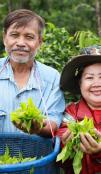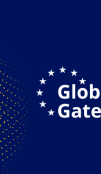Mozambique Update: EU Annual Report on Human Rights and Democracy in the World 2022

- Overview of the human rights and democracy situation
The overall human rights and democracy situation in Mozambique remained challenging in 2022. A focus of great concern continued to be the security and humanitarian crisis in the Cabo Delgado province and neighbouring provinces of Niassa and Nampula, where acts of terror and extreme violence resulted in over 4 000 deaths and, approximately, one million of internally displaced people since 2017. The armed groups continued to be accused of severe human rights crimes and abuses, including the recruitment of children, kidnappings, beheadings, and sexual and gender-based violence against women and girls. Mozambican and international journalists continued to report restrictions to their work, in particular in Cabo Delgado. Activists and human rights defenders continued working in a very complex environment with actions of intimidation, kidnapping and assassinations yet to be investigated. Some potentially restrictive laws (on media, broadcasting and on Non-Profit Organisations) were submitted to the Parliament for approval (still under scrutiny). On the positive side, there was a further commitment of the parties to the implementation of the 2019 Maputo Peace and Reconciliation Agreement, with the expected imminent closure of the last RENAMO base resulting into a total of 5 221 ex-combatants transitioning to civilian life.
- EU action - key focus areas
In 2022, the EU continued to focus on key areas such as peace building and good governance. There was also a particular focus on fighting gender-based violence. The EU continued to implement its integrated approach (encompassing humanitarian aid, development cooperation, peace building and security) to support the Mozambican authorities’ efforts to address the security and humanitarian challenges in Cabo Delgado, with a strong commitment to the respect for human rights and the rule of law. Under the security component of the integrated approach, the EU military training mission to Mozambique (EUTM) reached its full operational capability on 9 September 2022. In addition to military and tactical training of the specialised units of the Mozambican armed forces, a substantive part of the EUTM training programme continued to focus on human rights and international humanitarian law, including the protection of civilians, particularly women and children affected by armed conflict. This was conducted in cooperation with the ICRC and relevant UN organisations. As complementary measures in the spirit of “African solutions to African problems”, the EU decided (in September and December respectively) to support the deployment of both SADC Mission in Mozambique (SAMIM) and Rwanda Defence Force in Cabo Delgado, equally with strong human rights and rule of law requirements. The EU approved new actions towards the promotion of socio-economic rights of the Mozambican citizens in line with the Northern Mozambique Resilience and Integrated Development Program (PREDIN), adopted by the Government in June.
- EU bilateral political engagement
The EU engaged with the Government of Mozambique in two Political Dialogues (June 17 and December 5). Their agendas included international human rights and international humanitarian law as overarching principles of the EU integrated approach as well as the overall efforts towards permanent peace and rule of law across the country. Moreover, a dedicated Dialogue on Human Rights was held on 26 May. On this occasion, the authorities committed to exchange best practices with the EU in the fields of human rights, good governance and fight against corruption. The EU discussed the implementation of the 2019 EU Election Observation Mission (EOM) based on the outcomes of the EU Election Follow-up Mission that took place in March 2022. Several high-level visits took place in 2022: President Nyusi travelled twice to Brussels in February and met with the HR/VP Borrell, President of the European Council Michel, Executive Vice-President Timmermans, Commissioners Lenarcic and Urpilainen. The HR/VP Borrell visited Mozambique on 8-9 September, where he had meetings with President Nyusi and with the Foreign and Defence Ministers. At the end of October, the Vice-President of the European Commission in charge of Democracy and Demography Dubravka Šuica visited Mozambique in connection with the ACP-EU Joint Parliamentary Assembly.
- EU financial engagement
The EU supported a number of projects with a view to strengthening civic and political space:
- The I-IDEA programme on the support to the consolidation of democracy followed up on the implementation of the 2019 EU Election Observation Mission (EOM) recommendations, in particular with the finalisation of a proposal for a legislative reform that would address several of these recommendations. The project also contributed to paving the way for a support to the next electoral cycle, especially in terms of local observation and civic education.
- The “EU Programme to Support Non-State Actors: Participation for Inclusive Growth – PAANE” continued engaging public authorities and civil society in a constructive dialogue and inclusive participation in the elaboration and monitoring of public policies.
- The EU supported the protection of people in conflict-affected areas, contributing with over EUR 28 million of humanitarian assistance to people of Cabo Delgado. This amount included EUR 8.25 million for scaling-up humanitarian food assistance to newly displaced persons and last-mile delivery of aid in northern Mozambique, to respond to the impact on food security of Russia’s war against Ukraine. The EU’s portfolio of peacebuilding projects in the Northern provinces amounted to over EUR 10 million, amongst them a new project with UNODC (EUR 2 million) aimed to strengthen criminal justice responses to terrorism, including capacities for collecting, preserving and sharing of evidence in line with human rights standards. A specific action “Resilience in the North” (EUR 35 million) to support the development strategies of the Government of Mozambique in an integrated manner was also adopted. One of its key components focused on addressing sexual and reproductive health rights.
- The EU also launched a new project to strengthen the capacities of the National Human Rights Commission so that it can protect and promote human rights, particularly for communities affected by conflict and displacement (EUR 845,873, funded under the EIDHR). In parallel, the EU supported the project “Building Resilience, Inclusiveness and Capacity of Human Rights Defenders” implemented by the Southern Africa Human Rights Defenders Network and the Centro para Democracia e Desenvolvimento.
- The EU continued to support the peace process between the Government and the main opposition party RENAMO, notably by contributing to the Peace Process Secretariat Basket Fund managed by UNOPS (total EUR 4 million), and through the “Local Development for Peace Consolidation” (DELPAZ) project with the Austrian and Italian development agencies. In December the EU signed a new project to support national reconciliation.
- The EU concluded the implementation of the State and Resilience Building Contract as an exceptional short-term emergency response to the COVID-19 pandemic, with a specific focus on education, social protection and health.
- Finally, the EU sustained its support to the implementation of the UN Convention on the Rights of Persons with Disabilities, through the implementation of several projects with CSOs, including the main Disabled People’s Organisation FAMOD, and with the opening of a Unit for the protection and promotion of the rights of persons with disabilities within the National Human Rights Commission.
- Multilateral context
On 9 June 2022, Mozambique was elected unanimously as non-permanent member of the UN Security Council for the period of 2023-24. Throughout 2022, the EU and its Member States were supportive of the UN agencies, UNHCHR, UNHCR, UNICEF, IOM and WFP, in particular in connection with the security and humanitarian crisis in Cabo Delgado.





